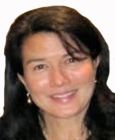Environment
Traditional Chinese Medicine, a Path to Well-being
Thousands of years of experience can help you improve your health.
Posted October 31, 2018

Traditional Chinese Medicine, or TCM, has been around for thousands of years and incorporates Taoism (a nature-based philosophy) with elements of Buddhism and Confucianism. Centered around the core belief that qi is the essential energy that flows through our bodies and powers all human life, TCM is based on four key principles.
The first posits that everything about a person is interrelated, that one's physical body, emotions, mind, and spirit are all interconnected and therefore affect one another.
The second assumes that every person is part of the natural world, and in so being, is affected by everything from the time, the place, the season, to one's age, genetic disposition, and physical condition.
The third states that, like all things in nature, we are regenerative and have the innate ability to heal our bodies. Unlocking this ability is the key to regaining and maintaining good health.
The fourth is that prevention is the key to staying well. Listening to our bodies and making adjustments when necessary, rather than ignoring the warning signs, can help prevent a more serious condition from developing.
To achieve and maintain good health, TCM employs a number of methods, including herbal medicines and diet, foot reflexology massage, tai chi, acupuncture, and acupressure—to name a few of the more well-known ones. These methods are used to promote the unimpeded flow of qi throughout the body, which is said to promote optimal health. They are also used to balance the opposing forces of yin and yang, believed by Taoists to be found in all things.
-----
I had my first Chinese foot massage in 2011 in Hong Kong, just before I moved to Beijing. As soon as I left the Happy Feet spa, I knew I was at serious risk of becoming a foot massage junkie.
When I lived in Tokyo in 1984-85 and again in 2010-11, I seemed to get every cold or bug that came my way. But once I moved from Tokyo to Beijing, a considerably dirtier and much more polluted city, I managed to stay healthy for a full two years without having so much as the sniffles, despite the fact that I traveled frequently and never seemed to get enough sleep. I credit my good health to regular 90-minute Chinese foot massages that left me so relaxed, I had to limit myself to one a week. Had I indulged my secret fantasy of having one a day, I would have been in a perpetually vegetative state and wouldn't have accomplished a thing!
Because all the nerve endings for our organs are located in our feet, massaging the "knots" in our feet is said to release toxins that impede the flow of qi and strengthen the immune system. It certainly worked for me and left me with a feeling of profound well-being.
-----
When my husband and I first visited Beijing in 1985, we were wandering through the many hutongs—narrow, old-style Chinese streets—when we came upon a pharmacy selling traditional herbal remedies, including "Ginseng Antler High Class Tonic." Back then, Western lettering was scarce and often comically translated. (It still is today, although far less so.)

By 2013, I had been living in a more modern Beijing since 2011 and was more open-minded. I decided to consult a TCM doctor to help me lower my blood sugar levels. A pre-diabetic for years, I had already been limiting my sugar intake, but my numbers kept creeping up. Not wanting to go on the medication prescribed by my doctor, I decided to explore what thousands of years of Traditional Chinese Medicine had to offer.
After a thorough examination, the TCM doctor was able to tell me exactly how I was feeling, without any prompting from me. She then gave me pictures of Chinese vegetables to buy at the market and some savory stew recipes to try. She told me to drink plenty of warm water with pressed lime every day and to keep my "core" warm, as it was a very cold winter. Within a few months, my blood sugar had come down.
When I returned to New York for the summer, I went to an Integrative Medicine doctor who combines Western medical practices with homeopathic medicines and Eastern procedures. She prescribed a natural herbal supplement that helped lower my blood sugar even more. While technically a U.S. M.D. and not a certified TCM doctor, she made me a lifelong fan of herbal supplements—provided they're from a high-quality lab.
-----
While I've never tried tai chi, I've seen countless groups of gray-haired Chinese in the Beijing parks, moving with nimble grace through their silent, meditative routines. Originally developed as a martial art, tai chi is now used to reduce stress through breath regulation and exercise. An American friend in her late nineties, who has been teaching tai chi for decades, insists that it improves balance and stamina, strengthens muscles, increases flexibility, and sharpens mental focus. Despite dividing her time between Beijing and the U.S., she never seems to have jet lag and has more energy than people decades younger, including yours truly.
-----
Acupuncture and acupressure are said to remove blockages within the body that restrict the flow of qi by applying needles into (acupuncture) or pressure onto (acupressure) certain body points. I have many friends in the States, including my own daughter, who swear it has helped them recover from a variety of muscle injuries. When I recently went to an acupuncturist for what I thought was a pulled bicep muscle, her treatment greatly eased my pain, although she also told me I needed to see an orthopedist and that I probably needed rotator cuff and possibly bicep surgery. She turned out to be right.
While the NIH reports that there is limited research in the U.S. on the viability of Traditional Chinese Medicine, and it seems that many traditional Western medical doctors still frown on TCM, initial studies indicate that acupuncture can be effective for the treatment of pain. What's more, many insurance companies, including mine, cover the cost of acupuncture to treat certain ailments. This last fact alone speaks volumes.
-----
But if you just want to feel healthier and a whole lot happier, I personally recommend having a Chinese foot massage. Be careful though. You might just find they're addicting.




